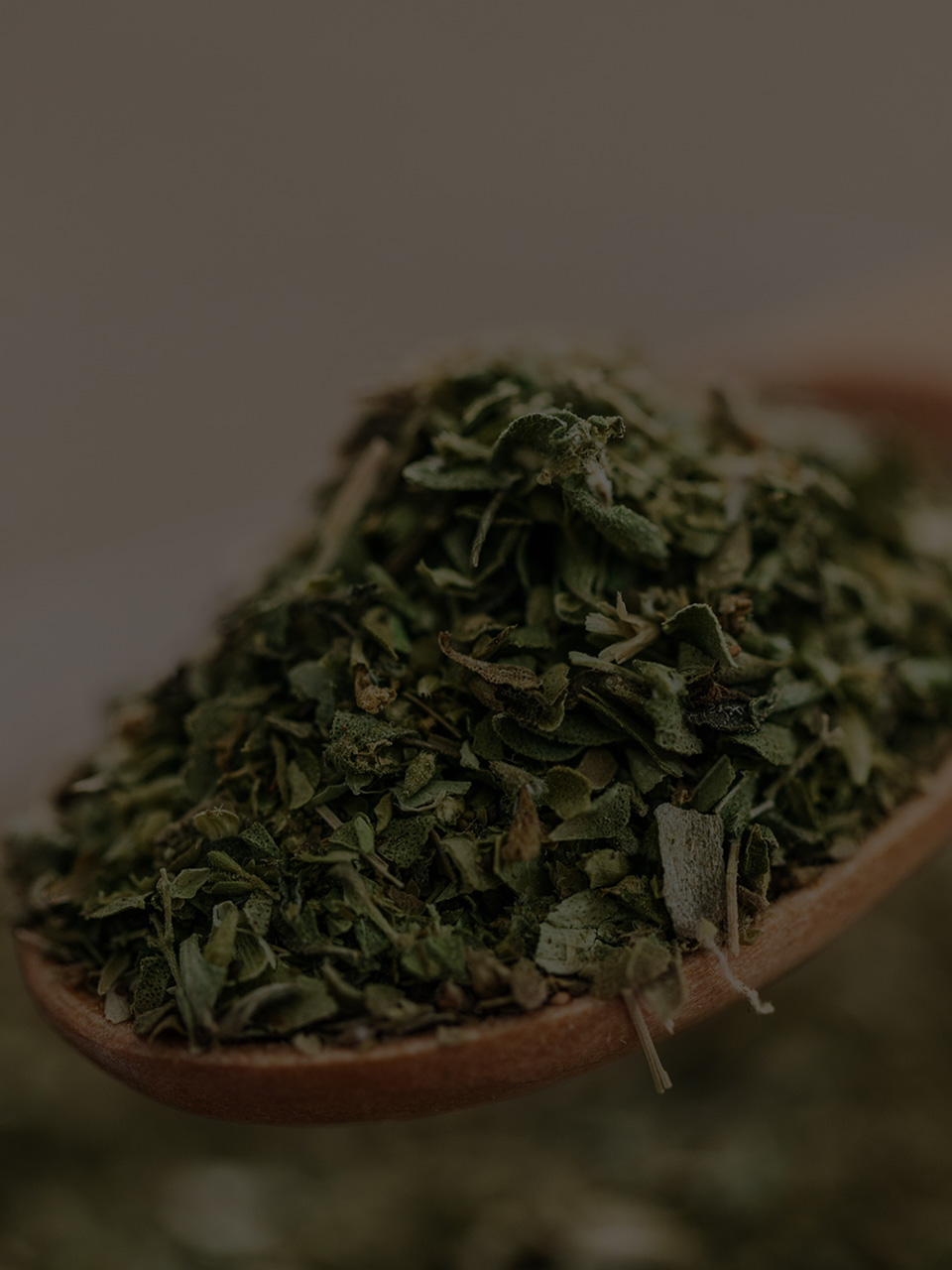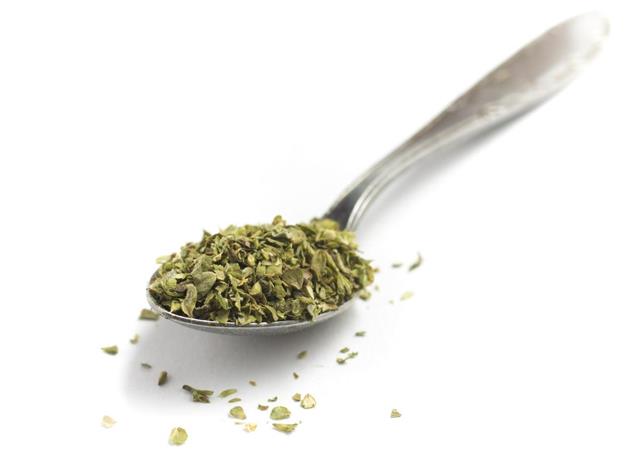
Tap to Read ➤
Medicinal Uses of Oregano
Oregano is a medicinal herb known for its antioxidant and anti-microbial properties. Keep reading to know about its many benefits..
Ningthoujam Sandhyarani


Oregano (scientific name Origanum vulgare), belonging to the family Lamiaceace, is a perennial herb native to Europe, Asia, and Mediterranean region. It is a highly aromatic plant with a bitter taste.

Plants that are closely related to oregano are Mexican oregano and marjoram. The amount of essential oils present in the oregano plant varies depending upon the species and growing conditions.

Dried leaves of oregano are commonly used for the therapeutic purposes as well as for the culinary purposes. When added, they enhance the flavor of pickles, sauces, and various food preparations.

Regarding the nutritional value of oregano herb, it contains iron, calcium, magnesium, copper, potassium, vitamins A, B6, C, E, K, niacin, and thiamine. However, it is more popularly known for its aromatic and balsamic (mint-like) flavor.

Uses of Oregano for Medicinal Purposes

➺ Oregano plant has been used for the treatment of various diseases since thousands of years. Medical researches reveal that oregano contains antioxidant, antimicrobial, antifungal, and anti-parasitic compounds. Because of these properties, it is added to hand soaps and disinfectants.

Considering these medicinal properties, the studies are ongoing to use oregano for the treatment of severe diseases such as heart disease, cancer, high blood pressure, and macular degeneration. The antioxidants from oregano can help strengthen the immune system.

➺ An antioxidant nature of oregano is evident from the presence of thymol and rosmainic acid. These compounds help in scavenging free radicals, thus preventing cell damage and membrane alteration. The amount of antioxidant present in a tablespoon of fresh oregano and a medium-sized apple are the same.

➺ The volatile oil carvacrol present in oregano inhibits the growth of bacteria and other parasitic microorganisms. Some studies found this medicinal herb to be more effective in killing Giardia than the prescription drugs.

Oregano supplements are also used for external and internal fungal infections. Patients with candidiasis have experienced a remarkable relief from the symptoms after using oregano. Some people use oregano as a natural remedy to treat cold and flu symptoms.

➺ The compound beta-caryophyllin (E-BCP) that is present in oregano helps prevent inflammation. So, oregano can be used to alleviate symptoms of osteoporosis, arteriosclerosis, or metabolic syndrome.

➺ Oregano is used for the treatment of flatulence, bloating, and other indigestion problems. It enhances the secretion of saliva and serves in improving digestion.
➺ It is also effective in overcoming menstrual symptoms and promoting menstruation.
➺ It is also effective in overcoming menstrual symptoms and promoting menstruation.

➺ Herbal tea prepared with oregano helps in alleviation of headache, urinary problems, lung disorders, diarrhea, nausea, vomiting, cough, cold, and jaundice.

➺ Oregano boiled in plain water can be used as a mouthwash. Gargling with this water can help to prevent tooth infection and sore throat. Oregano oil applied directly to the infected tooth helps in combating toothache.

➺ Ground oregano leaves soothe arthritis pain, insect bites, and other skin problems such as acne, athlete's foot, oily skin, dandruff, canker sores, warts, ringworm, rosacea, and psoriasis.
➺ Its bitter taste and strong aroma help in controlling head lice.
➺ Its bitter taste and strong aroma help in controlling head lice.

➺ Its antiviral properties help lower the symptoms of upper respiratory infections. It promotes removal of unwanted phlegm from your lungs.
➺ Carnosol, a phytochemical present in oregano exhibits anticancer properties and can be used to treat various types of cancers, for example, leukemia, breast, skin, prostate, and colon cancers.
➺ Carnosol, a phytochemical present in oregano exhibits anticancer properties and can be used to treat various types of cancers, for example, leukemia, breast, skin, prostate, and colon cancers.

➺ Oregano can reduce the symptoms of allergies, swine flu, muscle pain, fatigue, earache, sinus pain, asthma, bronchitis, varicose veins, and various other conditions.

Side Effects of Oregano

In general, there are no serious side effects of oregano. However, this medicinal herb can lead to certain health problems, if administered in high doses.

Some of the commonly observed adverse effects include skin allergies such as hives, skin rash, itching, and chest discomfort. The side effects of oregano are mostly observed among the people having allergies to herbal supplements.

As of now, scientific evidences are lacking to prove the medicinal benefits of oregano. However, a number of studies have claimed the safety of oregano, if used in lower doses. Oregano is not recommended for children, pregnant women, and lactating women.

Those who have other health conditions such as high blood pressure, diabetes, uncontrolled bleeding, or heart disease should not take oregano without medical supervision. In order to avoid unexpected complications, it is always advisable to seek an advice from a qualified physician before taking oregano.

Disclaimer: This is for informative purposes only and does not in any way attempt to replace the advice offered by an expert on the subject.